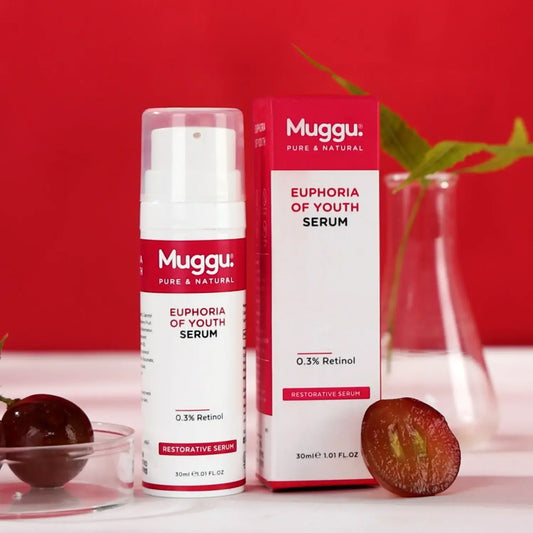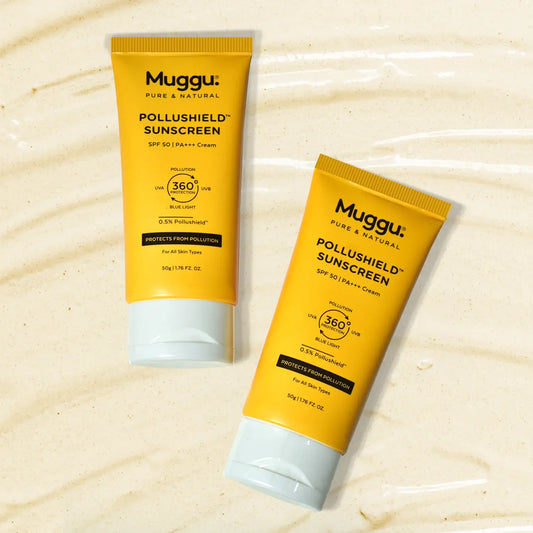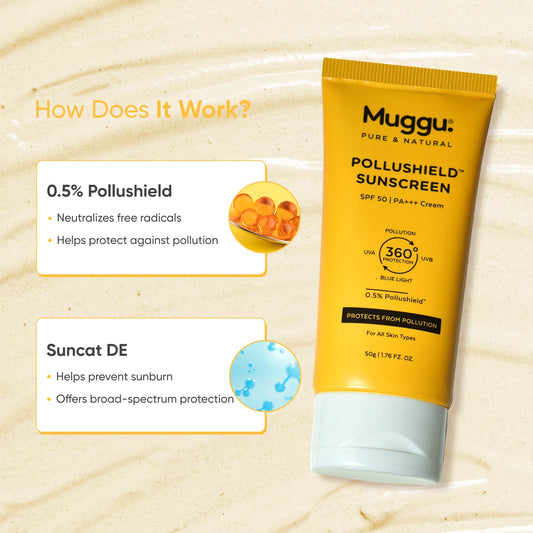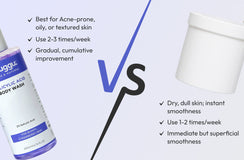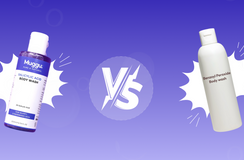When stressed, your body releases cortisol which triggers your fight-or-flight response. It causes your heart rate to increase, your breathing to become shallow, and your blood vessels to constrict.
While this response can be helpful in short bursts, chronic stress can lead to increased cortisol levels in the body, which can cause various skin problems.
Problems Caused by Stress
-
Acne: Stress activates your sebaceous glands, producing more oil, further leading to clogged pores and breakouts.
-
Eczema: Eczema is characterized by red, itchy, and inflamed skin. Stress can weaken your skin's natural barrier, making it more susceptible to irritation and inflammation. This can worsen symptoms of eczema or trigger flare-ups.
-
Psoriasis: Psoriasis causes red, scaly patches on the skin. Stress can trigger psoriasis flare-ups, making the condition more difficult to manage.
-
Rosacea: Stress can worsen rosacea symptoms, including redness, swelling, and bumps on the face.
-
Aging: Chronic stress accelerates the aging process, leading to dull skin, fine lines, and wrinkles. When elevated for prolonged periods, cortisol levels can damage elastin fibers and collagen in the skin. These fibers provide structure and elasticity to the skin, so the skin loses firmness and resilience when they break down.
What Can You Do About It?
While it's impossible to eliminate stress completely, you can take some steps to manage it and protect your skin. Here are some tips:
-
Practice stress-management techniques: One of the most effective ways to manage stress is to practice stress-management techniques like meditation, deep breathing, or yoga. These techniques can help you relax and reduce your cortisol levels. You can practice mindfulness meditation for a few minutes daily to help clear your mind and reduce stress. Deep breathing exercises can also help you feel more centered and calm. Additionally, it will promote healthy skin and improve your overall well-being.
-
Get enough sleep: Getting enough sleep is essential for overall health and well-being, especially for healthy skin. When you don't get sufficient sleep, your body produces more cortisol, which can lead to inflammation and breakouts. Lack of sleep can exacerbate stress and lead to tired, dull-looking skin. Aim for 7-8 hours of sleep per night to help your body and skin repair and rejuvenate.
-
Exercise regularly: Exercise releases endorphins, improving mood and reducing stress levels. It can also promote healthy blood flow to the skin.
-
Eat a healthy diet: Eating a healthy diet is essential for healthy skin. Focus on eating a balanced diet with plenty of vegetables, fruits, lean proteins, and whole grains. Foods high in antioxidants can also help protect your skin from damage caused by stress and free radicals. In addition, drinking plenty of water can help keep your skin hydrated and healthy.
-
Take care of your skin: Good skincare is essential for healthy skin, especially when dealing with stress-related skin problems. Choose gentle, non-irritating products that won't strip your skin of its natural oils. Be sure to cleanse your skin twice daily, and use a moisturizer to keep your skin hydrated. Use an SPF 50 PA+++ sunscreen to protect your skin from sun damage.
Conclusion
Stress can adversely affect your skin, from acne and eczema to premature aging. However, by practicing stress-management techniques, getting enough sleep, exercising regularly, eating a healthy diet, and taking care of your skin, you can reduce the impact of stress on your skin and promote a healthy, radiant complexion. Remember, self-care isn't just about pampering yourself - it's essential to staying healthy and happy, inside and out.


